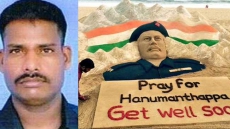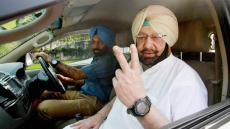Substandard medicines could be three times more prevalent than the government says, two new studies show.
These data have serious implications on health in a country where 58.2 percent of the total health expenditure is an out-of-pocket cost burden on people, according to the World Health Organization, and where medicines alone account for between 70 percent and 77 percent of health spending.
Substandard drugs work less effectively, causing disease to run a longer course, and can even require a new prescription during treatment. Substandard drugs also contribute to antibacterial resistance, a threat that has doubled in the last five years in India, IndiaSpend reported earlier.
About 4.5 percent of the drugs in the Indian market are substandard, according to surveys by the Central Drug Standard Control Organisation (CDSCO), the official regulatory authority.
Reputed brands too fail to meet quality standards
Experts believe that more lucrative routinely prescribed drugs are at higher risk of failing quality standards, as this new study, published in the December 2015 Journal of Applied Pharmaceutical Science, concluded, after testing 32 samples of diclofenac sodium, a popular pain killer. A second study, published in 2016 in the International Journal of Pharmacy and Pharmaceutical Sciences, evaluated 46 samples of amoxicillin trihydrate, a fast-moving antibiotic.
"We found a substandard medicine incidence of 15.62% for diclofenac sodium and 13.04% for amoxicillin trihydrate," said Ahmed Nawaz Khan, study co-author and assistant professor, Department of Pharmacy, Jaypee University of Information Technology, Solan.
Even some higher-priced medicines from reputed sellers failed to measure up. "This is sad because many consumers shell out more for reputed brands, believing those products are better," said Khan.
To make the grade, a tablet must contain between 90 percent and 110 percent of the active ingredient named on the label, according to the Indian Pharmacopoeia Commission, an autonomous Indian health ministry institution. However, the CDSCO offers a five percent grace margin on that lower limit, a leeway Khan called 'needless'.
If the more stringent Indian Pharmacopoeia specification was made the yardstick for quality, twice the number of samples of Khan's study would fall short. The implications of this finding: "Borderline quality suggests a lack of quality control," said Khan.
If you can't measure drug quality, you can't manage it
Government surveys reveal a falling incidence of substandard and spurious drugs in the Indian market-from about nine percent in the mid-1990s, as a 2015 International Journal of Pharmacy and Pharmaceutical Sciences study cited, to 4.5 percent in recent years.
Spurious medicines alone, distinguishable from substandard products for being imitations of (usually) popular branded drugs, with ingredients that may or may not match their label, make up a negligible part of the Indian drug market as per the CDSCO-0.046 percent according to its 2009 Report on Countrywide Survey for Spurious Drugs and 0.11 percent, according to last year's regular sampling.
What happens to drugs that fail quality standards?

Manufacturers of drug samples that fail CDSCO tests for ingredients, dissolution, sterility, toxicity, among others, are served notice.
Of six such manufacturers this reporter spoke to, only one private manufacturing unit, Akpash Pharmaceuticals in Madhya Pradesh, hauled up in December 2015 for a batch of metronidazole tablets that failed a dissolution test, consented to speak on the record:
"We withdrew the entire batch from the market, investigated the cause, found a quality issue with the intermediate used as the binding agent for the tablet, and have since taken corrective action," said director Girdharilal Jadwani.
Seven testing laboratories cater to all of India's drug-testing needs
No more than seven national-testing laboratories capable of processing about 15,000 samples per year cater to the entire country.
"State drug regulatory authorities have given out licenses left, right and centre. But the rise in the number of manufacturing units and products hasn't been matched by expanded testing capacity," said Khan.
With cases becoming long-drawn affairs, penalties rarely enter the picture.
How to put testing in the hands of the consumer
Consumers need technology that allows them to verify the quality of a strip of medicines. That is possible with solutions from a host of companies, such as Sproxil, PharmaSecure and mPedigree.
For instance, PharmaSecure, a global provider of verification technology for pharmaceutical companies, generates a unique alphanumeric code for a strip of medicines, printed on the package directly or applied via scratch-off labels or holographic labels, pasted on the packaging line. Consumers buying the medicine can inquire-via SMS, mobile app or online-whether the code, and therefore the medicine, is genuine or not.
"Typically, we process one inquiry for one code," said Samit Yadav, vice president - operations, PharmaSecure. "A second inquiry for the same code could indicate that the strip had been passed on to an alternative user, who also wants to check its veracity, but a third and more inquiries for one code would definitely raise questions."
On the day this report was written, PharmaSecure was tracking a situation with the makings of a scam. "We have been receiving 15 inquiries a day, for the last couple of weeks, to verify one single code, and these inquiries have poured in from across India," said Yadav.
After analysing those interactions, PharmaSecure was passing on the data to brand owners for further investigation. "At worst, the situation would mean that an unscrupulous manufacturer has produced an imitation product bearing the labelling-code included-of one genuine packet of the medicine in question," said Yadav.
Few companies in India voluntarily use medicine-verification technology, although it is affordable and locally available.
The government's stand is that verification technology is expensive for small firms.
Another technology that would help root out substandard drugs is near-infrared spectroscopy, a technique can filter hundreds of samples in a few minutes, much faster than conventional, expensive high-performance chromatography technique, said Khan.
The bottom line: India's substandard-drug problem can be solved.






